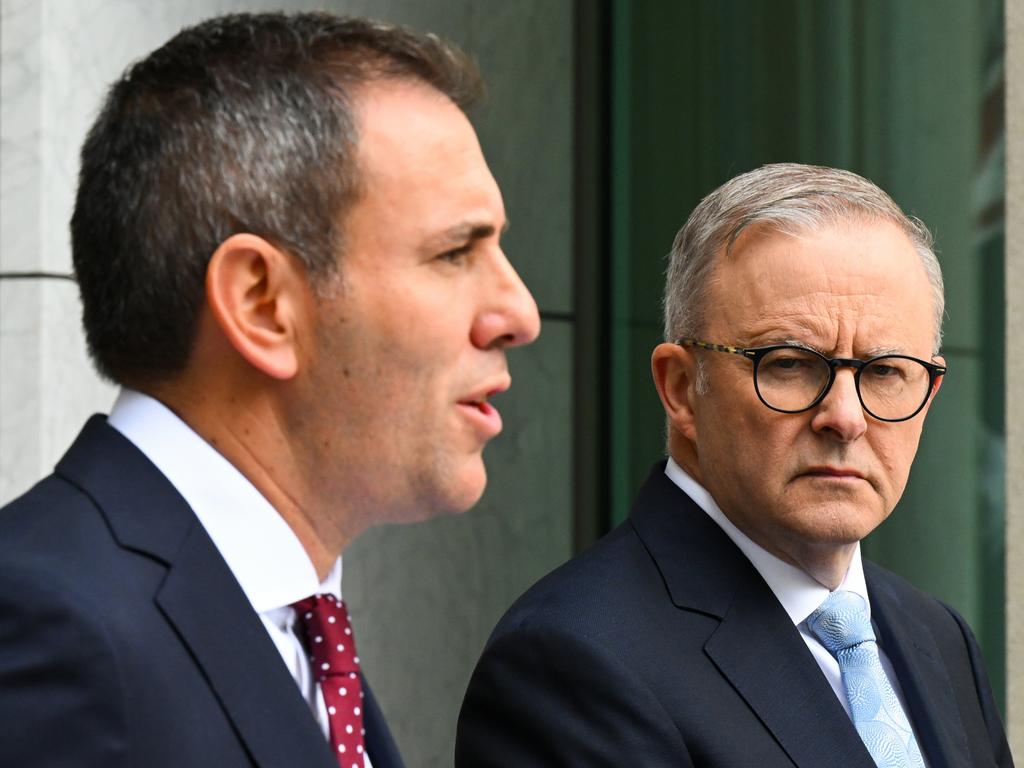Energy and IR changes put us on the road to poverty
The first is the cost and disorganisation of the energy transition to lower emissions, something that has been decades in the making. The second is in the area of industrial relations, where government policy is accelerating towards a future that threatens to impoverish us all. Mr Banks says historically Australia’s low energy costs partly offset the high self-imposed burdens of our rigid labour market, but bad policy has brought about the opposite situation where we squander our energy advantage and revive our traditional disadvantage with respect to labour, suppressing investment and productivity growth as well as real incomes.
Mr Banks makes the obvious point that a government cannot redistribute what its economy has not produced. Without adequate productivity growth and the income gains this makes possible, the ability to redistribute “other people’s money” must eventually falter.
On energy, Mr Banks says successive governments have abandoned the financially sound advice that as a small-emissions nation, Australia should not get ahead of what major emitters the US and China were doing. Rather than a planned transition, we are now betting the economic house on a pathway without a proper plan. “In the Ukraine, power stations are destroyed by Russian missiles,” Mr Banks writes. “In Australia we blow them up ourselves. And we do this without having a way to replace the critical 24/7 service they provide.” This is a message that has been offered by this newspaper over many years. But governments, both state and federal, continue to double down on the energy transition while they ignore the very experts they have appointed who say that gas will be an essential fuel for decades to come.
On industrial relations reform, Mr Banks says the Coalition has been gun shy since the successful campaign run against John Howard by Labor and the ACTU. But the changes ushered in by the Albanese team under the pretext of “getting wages moving” and “job security” will succeed only in further undermining the market “dynamism” that Treasury sees as paramount to raising productivity growth. Mr Banks says the truth that is no longer spoken out loud is that “Work Choices” actually made economic sense. But in freeing up the system, it struck at the very source of union power, provoking a response that contributed to Labor’s election win.
He laments that as a nation we have entered a new phase in our democracy in which electorates can no longer trust what a political party says it will do or not do in office. “I never thought that the sovereign risk issues prevalent in certain Third World or socialist countries would one day afflict my own,” he says.
All up, it is a stinging indictment and Mr Banks must be congratulated for putting it into the public sphere. Leaders of all political persuasions should read Mr Banks’ views and absorb what they say about how we are now governed. Price caps and market interventions, attacks on “windfall” corporate profits, undermining confidence in long-term planning for superannuation and putting union concerns at the head of the queue are all actions that will compound the issues identified by Mr Banks. Something clearly needs to change and it should start with a proper review of the Productivity Commission’s five-yearly productivity report to government now sitting on Jim Chalmers’ desk.



Inaugural Productivity Commission chairman Gary Banks has offered an unvarnished but welcome perspective on the poor state of public policy in Australia and what it means for future prosperity. Mr Banks zeros in on two areas that define the current malaise and are most relevant for the Albanese government.